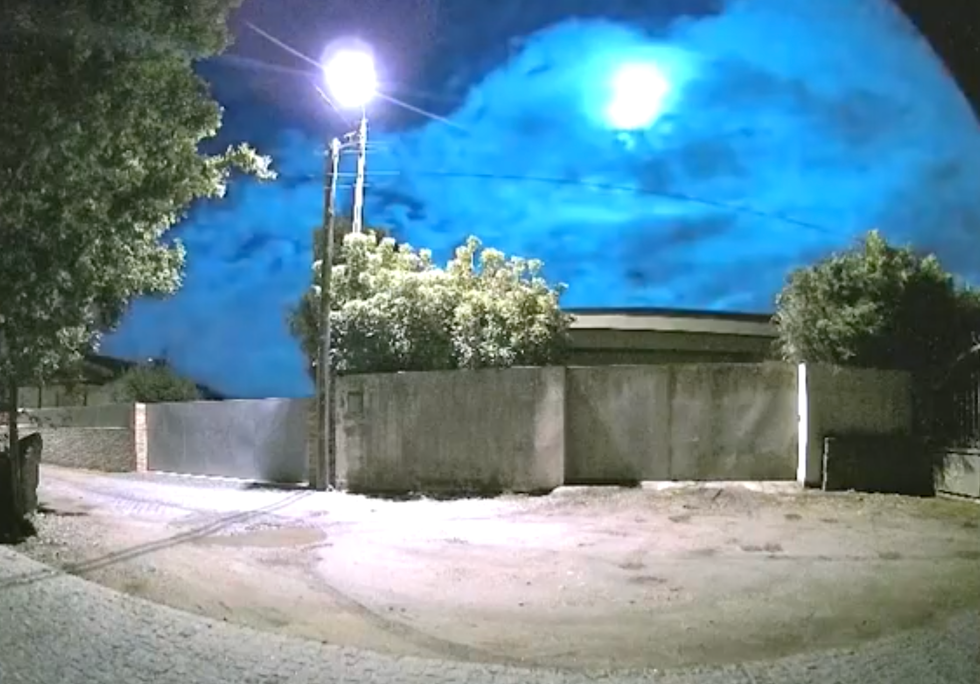Meteor lights up sky in bright blue as huge fireball breaks through into atmosphere above Europe

WATCH: Comet fragment dazzles crowd in Portugal as it lights up night sky
|Reuters

Images on social media showed a chunk of comet flying through the sky
Don't Miss
Most Read
Latest
A bright blue meteor lit up the sky in Europe on Saturday when a huge fireball burst through the atmosphere.
Images on social media showed a chunk of comet flying through the sky in the south of Spain and Portugal, towards the Atlantic Ocean.
The shooting star was seen as far north as Brittany, in northwest France and as far south as Andalusia, in southern Spain.
Scientists say early analysis suggests the blue colour came from an icy comet.

A bright blue meteor lit up the sky in Europe on Saturday when a huge fireball burst through the atmosphere
|Reuters
The European Space Agency wrote on social media: "It appears that this object was a small piece of a comet.
"We estimate that it flew over Spain and Portugal travelling at ~45 km/s [25 miles per second] before burning up over the Atlantic Ocean at an altitude of ~60 km [37 miles].
"The likelihood of any meteorites being found is very low."
Experts were not aware that the rock was heading towards Earth until it entered the atmosphere above Spain at around 10.45pm local time.
LATEST DEVELOPMENTS:
According to Prof Jose Maria Madiedo, an astronomer at the Institute of Astrophysics of Andalusia, the space rock ended its journey over the ocean.
Details including which comet the piece came from and how big it was, remain unknown.
Scientists say that it's possible that it originated in Halley’s Comet and formed part of the Eta Aquariids meteor shower.
However, more research is required to determine where it originally came from.

Scientists say early analysis suggests the blue colour came from an icy comet
|Reuters
Nasa say the fireball was travelling slower than an Aquariid event normally does.
"It seems this was a cometary particle. The entry speed was between 44 and 45 km/s [27 and 28 miles per second]," Richard Moissl, head of the Planetary Defence Office, told The Telegraph.
"It overflew Spain and Portugal and then burned up at around 60km [37 miles] of altitude above the Atlantic. For sure, not a meteorite."










